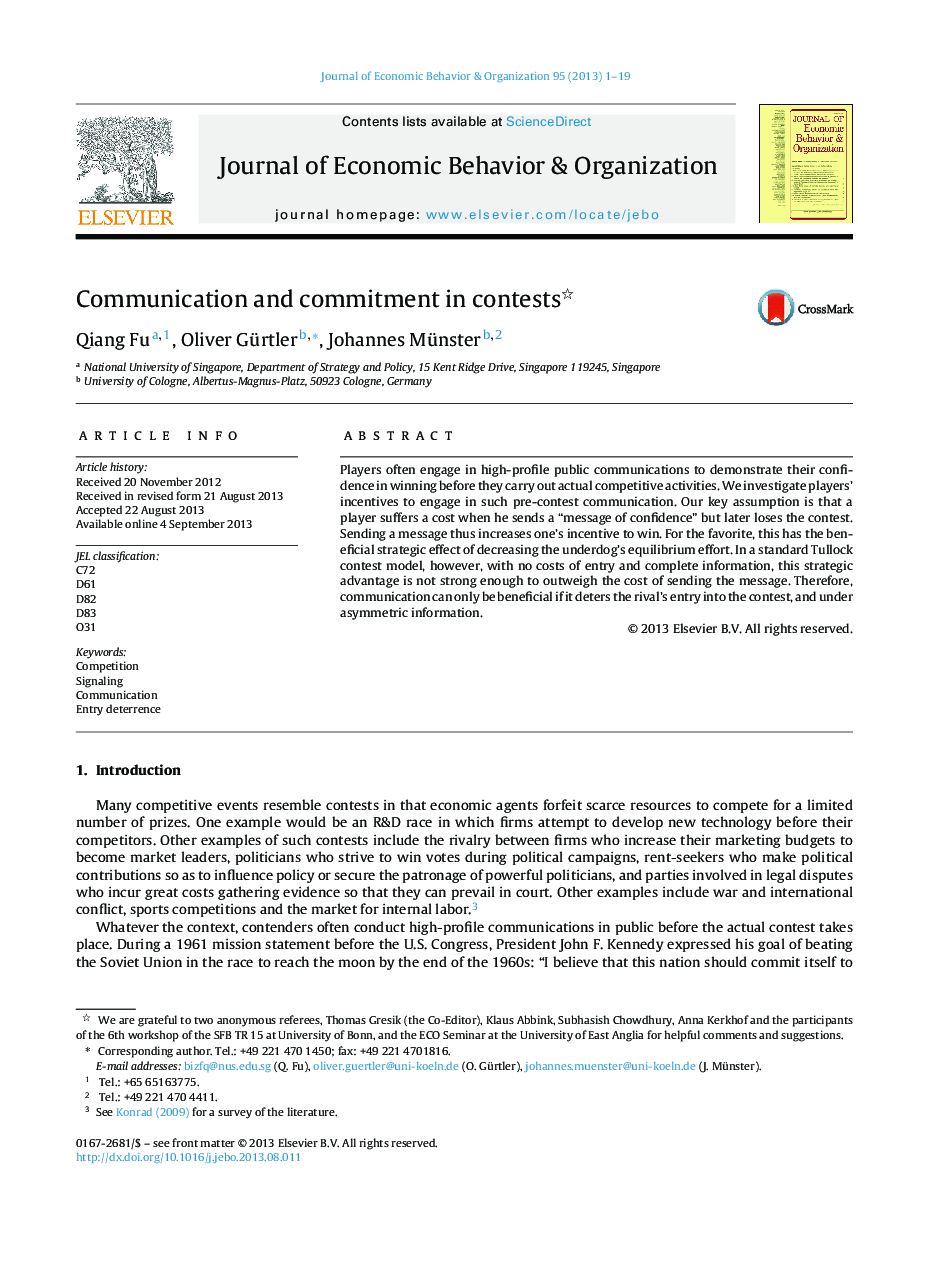| Article ID | Journal | Published Year | Pages | File Type |
|---|---|---|---|---|
| 883581 | Journal of Economic Behavior & Organization | 2013 | 19 Pages |
•This paper analyzes communication prior to a contest.•Before choosing competitive actions, players may signal their confidence of winning.•Sending a “message of confidence” increases the player's incentive to win.•Communicating confidence may deter the opponent's entry into the contest.•It may also transmit a player's private information about his strength.
Players often engage in high-profile public communications to demonstrate their confidence in winning before they carry out actual competitive activities. We investigate players’ incentives to engage in such pre-contest communication. Our key assumption is that a player suffers a cost when he sends a “message of confidence” but later loses the contest. Sending a message thus increases one's incentive to win. For the favorite, this has the beneficial strategic effect of decreasing the underdog's equilibrium effort. In a standard Tullock contest model, however, with no costs of entry and complete information, this strategic advantage is not strong enough to outweigh the cost of sending the message. Therefore, communication can only be beneficial if it deters the rival's entry into the contest, and under asymmetric information.
